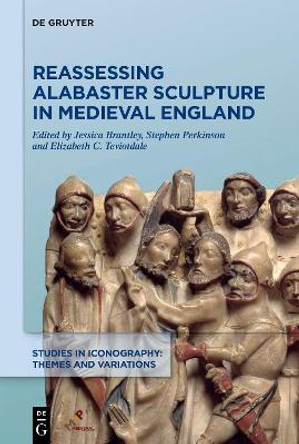Description
Explores the role of criminal intent in constituting felony in the first two centuries of the English criminal trial jury.
About the Author
Elizabeth Papp Kamali is Assistant Professor of Law at Harvard Law School, Massachusetts.
Reviews
'Probing the boundaries of popular conceptions of mens rea, Kamali draws on a remarkable array of non-legal sources, from homilies and theological treatises, to poems, ballads, and romance literature. In so doing, Kamali becomes one of the few legal historians to analyze the law with respect to the culture that produced it. The result is an engrossing study of medieval England's justices and jurors and the cultural pressures that influenced their verdicts.' Sara M. Butler, King George III Professor in British History, Ohio State University
'No one who reads Elizabeth Papp Kamali's study of mens rea in the operation of medieval English justice can come away unimpressed. It is founded on a thorough exploration of the legal sources, but it is profoundly enriched by the author's brilliant exploitation of literary sources. Taken together, both sorts of texts allow Professor Kamali to uncover more than we have ever known of the mentality of English judges, jurors and, criminals alike. Her book is in every way a tour de force.' William Chester Jordan, author of From England to France: Felony and Exile in the High Middle Ages
'Elizabeth Papp Kamali's compelling analysis of felony trials demonstrates how a masterful engagement in religious and literary sources illuminates and enriches our understanding of the formal legal world in the later medieval period - its actors, its processes, its rules and, particularly, its outcomes. This ground breaking book deserves to be read for a very long time indeed.' Alice Taylor, King's College London
'Kamali's book is not just a tour de force. It is a scholarly treat, brilliantly marrying legal and literary history. Medievalists with any interest in law should rush to read it.' James Whitman, Ford Foundation Professor of Comparative and Foreign Law, Yale University
'Kamali explores how medieval juries acted on their 'understanding of culpability situated in the heart and mind' as they judged defendants accused of homicide and other serious crimes. Her deep archival research in judicial records and examination of literary and religious texts reveal the depth and breadth of the medieval understanding of mens rea, or guilty mind, which undergirded the concept of liability ... Recommended.' L. C. Attreed, Choice
'Using an impressive range of sources - administrative, jurisprudential and literary - she supplies a definitive survey of the means and devices by which juries struggled to dispense justice in criminal cases, over the century after 1215 ... promise[s] a bright future, not only for [Kamali] but for the ongoing study of medieval law.' Nicholas Vincent, History
Book Information
ISBN 9781108712743
Author Elizabeth Papp Kamali
Format Paperback
Page Count 352
Imprint Cambridge University Press
Publisher Cambridge University Press
Weight(grams) 500g
Dimensions(mm) 210mm * 150mm * 20mm





